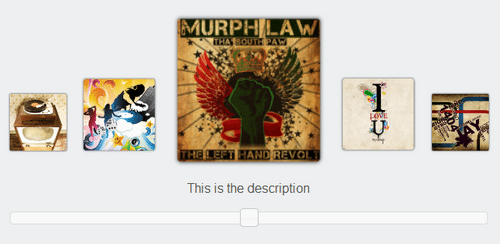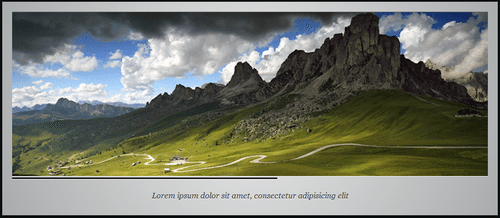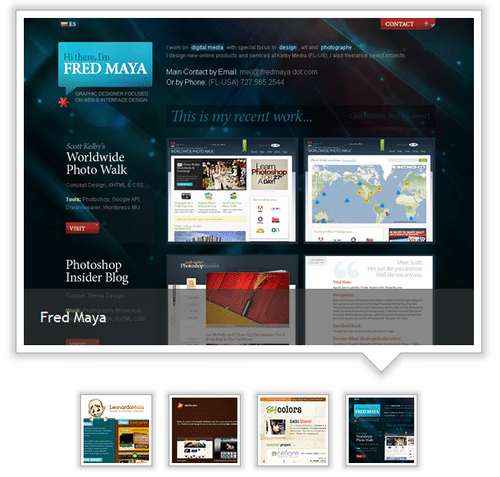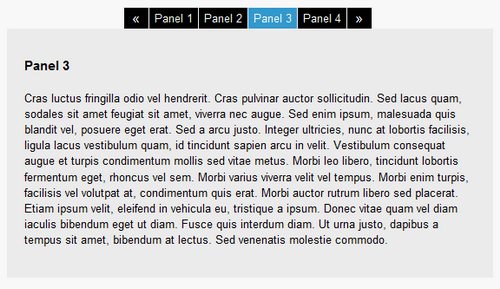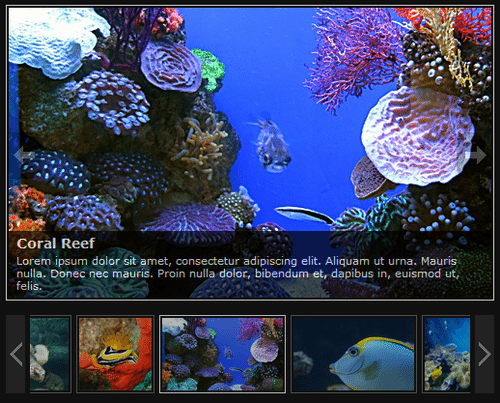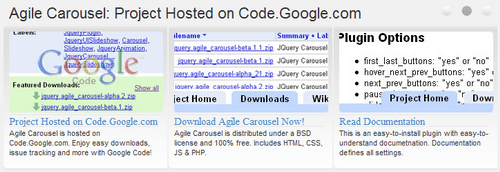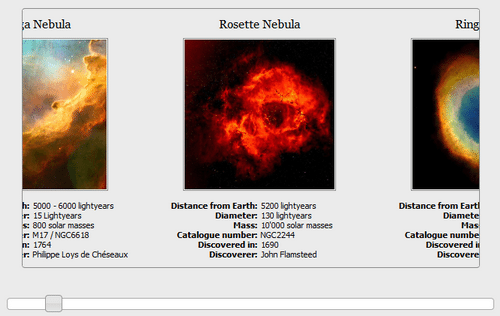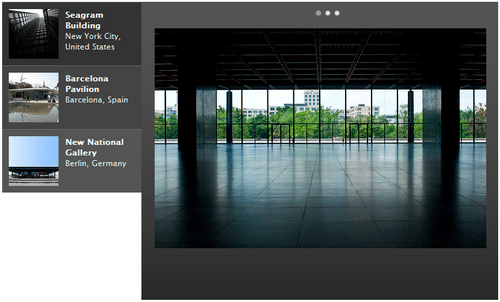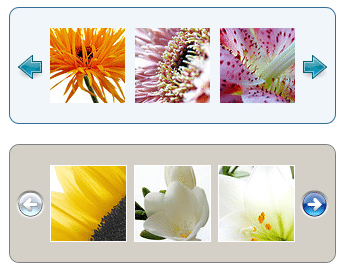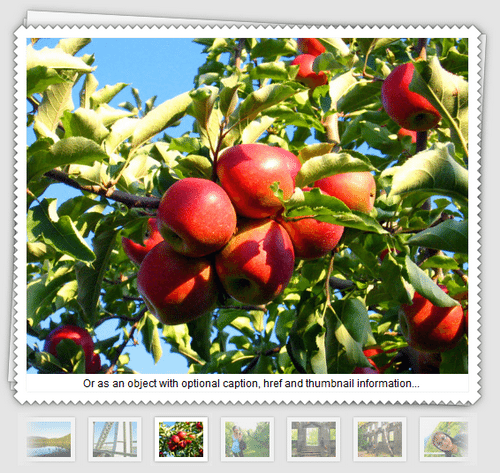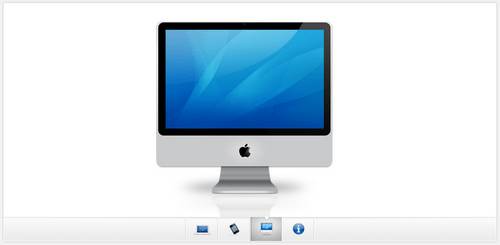If you're looking for good open source developer tools, you literally have thousands to choose from. For this list, we focused on 60 of the best and most well known. Rather than trying to rank them, we've arranged them into categories and listed them in alphabetical order.
One quick note about operating systems: Many of these open source developer tools run on a wide range of OSes. In some cases, they support more than a hundred different platforms.
For the sake of keeping the list short and readable, we noted whether each developer tool supports the big three – Windows, Linux and OS X. If you want to know whether a particular tool will run on Solaris or FreeBSD or another platform, you can click the link to check its Web site.
Open Source Bugtrackers
1. Bugzilla
More than 1,000 groups use Bugzilla to track their software bugs, including Mozilla, Facebook, the Linux kernel and NASA. The Web-based system makes it easy to manage code changes, issue patches and stay in communication with other members of your development team. Operating System: Windows, Linux, OS X
2. GNATS
The GNU bug tracking system stores information about software defects in a central searchable database. It can be accessed via a variety of interfaces and can send communication to team members as needed. Operating System: OS IndependentOpen Source Business Rule Management System
3. JBoss Drools
A competitor to commercial software like Blaze Advisor and JRules, Drools describes itself as a business logic integration platform for rules, workflow and event processing. It includes five separate modules: Drools Guvnor (BRMS/BPMS), Drools Expert (rule engine), Drools Flow (process/workflow), Drools Fusion (event processing/temporal reasoning) and Drools Planner (automated planning). Operating System: OS Independent
Open Source Code Documenters
4. Javadoc
Javadoc uses the comments you embed in your Java code to create an HTML documentation file. By default it describes the public and protected classes, nested classes (but not anonymous inner classes), interfaces, constructors, methods and fields. It's included in Oracle's Java developer kits. Operating System: Windows, Linux, OS X
5. JSDoc
Based on Javadoc, JSDoc parses your JavaScript code to create documentation. Note that in order to use it on Windows, you'll need a Perl runtime. Operating System: Windows, Linux
Like Javadoc, phpDocumentor turns code comments into readable documentation for users, only in this case for the PHP language instead of for Java. It's very fast and includes a variety of templates. Operating System: OS Independent
Open Source Compilers
Intended as a replacement for Microsoft's .Net, DotGNU provides a variety of tools to compile and run applications. It currently supports C and C#. Operating System: Windows, Linux, OS X
8. GCC
The "GNU Compiler Collection" offers front ends and libraries for C, C++, Objective-C, Fortran, Java, and Ada. It's probably the most widely used compiler for code that will run on multiple operating systems. Operating System: OS Independent.
9. MinGW
"Minimalist GNU for Windows" ports the GCC compilers and GNU Binutils for Windows. It allows you to use GNU tools to build Windows apps from Windows or Linux systems. Operating System: Windows, Linux
10. Open64
Formerly known as Pro64, Open64 was created by Intel and the Chinese Academy of Sciences. It includes compilers for C, C++ and Fortran90/95 compilers for the IA-64 Linux ABI and API standards. Operating System: Linux
Open Source Databases
11. MySQL
Now owned by Oracle, the "world’s most popular open source database" counts Yahoo, Alcatel-Lucent, Google, Nokia, YouTube, and Zappos.com among its users. It's highly scalable, flexible, fast, and has become the "de facto standard for high-traffic Web sites." Operating System: Windows, Linux, OS X
12. PostgreSQL
MySQL may boast the "world's most popular" title, but PostgreSQL stakes its claim as the "world's most advanced open source database." Version 9.0 was just recently released and offers built-in binary replication, hot standby, easier permission management and several other new features. Operating System: Windows, Linux, OS X
Open Source Distributed Computing
13. Hadoop
Hadoop offers a variety of tools for working with large amounts of data in distributed computing environments. Notable users include Yahoo, Facebook, Google, Hulu, IBM, LinkedIN, The New York Times and others. Operating System: OS Independent
Open Source Integrated Development Environments (IDEs)
14. Anjuta DevStudio
GNOME's IDE supports C and C++ development on Linux systems. It includes an application wizard, interactive debugger, source code editor, version control, GUI designer and more. Operating System: Linux
15. Code::Blocks
This cross-platform C++ IDE is highly extensible, making it easy to add the features you want. It includes built-in compiling and debugging capabilities, plus an easy-to-use interface. Operating System: Windows, Linux, OS X
16. Dev-C++
Dev-C++ is a C/C++ IDE with support for all GCC-based compilers. Key features include integrated debugging, project management, customizable syntax editor, code completion and others. Operating System: Windows
17. Eclipse
What started as a Java IDE has grown into an entire development ecosystem. At this site you'll find the IDE itself along with a wealth of other Java development tools, educational materials and other help. Operating System: OS Independent
18. KDevelop
The KDE development environment has been around for nearly a decade and has won a number of awards. It offers good support for C, C++, and PHP, as well as limited support for Ada, Bash, Fortran, Haskell, Java, Pascal, Perl, Python, Ruby and SQL. Operating System: Windows, Linux, OS X
19. MonoDevelop
Owned by Novell, MonoDevelop is a cross-platform C# and .NET development environment. It enables the rapid creation of desktop and ASP.Net Web apps, as well as an easy way to port applications created with Visual Studio to Linux. Operating System: Windows, Linux, OS X
20. NetBeans
While primarily a Java tool, NetBeans also supports JavaFX, PHP, JavaScript and Ajax, Ruby and Ruby on Rails, Groovy and Grails, and C/C++. It's designed to help developers quickly create web, enterprise, desktop, and mobile applications. Operating System: Windows, Linux, OS X
21. SharpDevelop
A free IDE for Microsoft’s .NET platform, SharpDevelop (or #develop) supports C#, VB.NET, IronPython, IronRuby, F# and Boo. It offers an integrated debugger, code analysis, integrated Subversion support and more. Operating System: Windows
22. Ultimate++
This rapid application development framework includes both a C++ library and an IDE designed to handle large applications. Its emphasis is on speeding up the development process and includes "BLITZ-build" technology that makes C++ rebuilds up to four times faster. Operating System: Windows, Linux
Open Source JavaScript Library
23. jQuery
jQuery calls itself "the write less do more JavaScript library," and that's a pretty apt description. It simplifies HTML document traversing, event handling, animating, and Ajax interactions for rapid web development. Operating System: OS Independent
Interface Designer
24. Glade
Glade lets developers quickly create interfaces for the GTK+ toolkit and the GNOME desktop environment. It saves those interfaces in XML so they can be accessed by applications written in a wide variety of programming languages. Operating System: Windows, Linux, OS X
Open Source Mobile App Development
PhoneGap is a cross-platform development tool that lets you use HTML5 and JavaScript to create native iOS, Android, Palm, Symbian and/or BlackBerry apps. Increasingly popular, it's been downloaded more than 200,000 times and has won a number of awards. Operating System: Window, Linux, OS X
26. Sencha Touch
With Sencha Touch, developers can create HTML5 apps that look and feel like native iOS or Android apps. It calls itself, "the world's first app framework built specifically to leverage HTML5, CSS3, and JavaScript for the highest level of power, flexibility, and optimization." Operating System: OS independent
Open Source Modeling
27. ArgoUML
The self-proclaimed "leading open source UML modeling tool" supports all standard UML 1.4 diagrams and comes in 10 different languages. Because it's based on Java, it runs on any platform, and it can export diagrams in six different file formats. Operating System: OS Independent
28. StarUML
Designed as an alternative to Rational Rose and other commercial modeling tools, StarUML supports both the latest UML standards and Model Driven Architecture (MDA). It's very user-friendly and features a plug-in architecture. Operating System: Windows
Open Source Parallel Programming
This library helps C++ developers take advantage of the benefits of multi-core processing systems, even if they don't know a lot about threading. It's available in both a commercial and an open source version. Operating System: Windows, Linux, OS X
Open Source Programming Languages
30. Go
Recently developed by Google, Go aims to make developers more productive by providing them with a clean, simple programming language. And unlike many older languages, it offers garbage collection and parallel computation. Operating System: Linux, OS X
31. Java
Originally developed by Sun but now owned by Oracle, Java allows developers to write code that will run on multiple operating systems. According to Tiobe, it's the most popular programming language in the world. The link above offers extensive help for those new to the language and a large collection of tools for Java developers. Operating System: Windows, Linux, OS X
32. Perl
Perl has been around for 22 years and runs on more than 100 different platforms. It's an ideal Web programming language and integrates easily with popular databases. Operating System: Windows, Linux, OS X
33. PHP
This general purpose scripting language is particularly suited to Web development, enabling developers to write dynamically generated pages quickly. A lot of its syntax comes from C, Java and Perl, and it can be embedded into HTML. Operating System: Windows, Linux, OS X
34. Python
Python's strengths are its speed, flexibility and readable syntax. It's often used in Web development but can be used for other types of applications as well. Operating System: Windows, Linux, OS X
35. Ruby
Designed to feel "natural," Ruby's creator Yukihiro “matz” Matsumoto blended parts of Perl, Smalltalk, Eiffel, Ada, and Lisp to create a new language that's been called both "handy" and "beautiful." It's ranked as the tenth most popular programming language in the world, due in no small part to the popularity of the Ruby on Rails framework. Operating System: Windows, Linux, OS X
Open Source Server Software
The most widely used Web server on the Internet, Apache turned 15 this year. It serves more than half of the Web sites in existence. Operating System: Windows, Linux, OS X
37. Apache Tomcat
While the standard Apache HTTP server is based on C, Tomcat is an implementation of the Java Servlet. Its users include E*Trade, Wal-mart, The Weather Channel, and many others. Operating System: Operating System: Windows, Linux, OS X
38. EasyPHP
EasyPHP lets you set up a WAMP (Windows, Apache, MySQL and PHP) environment on a system or a thumb drive in just minutes. It also includes optional modules for WordPress, Spip, PrestaShop, Drupal, Joomla, and other apps. Operating System: Windows
39. XAMPP
This download bundles together the Apache Web Server, MySQL, PHP, and Perl for easy installation. It's available in four versions—for Windows, Linux, OS X, and Solaris—and each distribution also includes a number of other server apps appropriate for each platform. Operating System: Windows, Linux, OS X
Open Source Statistical Computing
40. R
R is both a programming language and an environment for developing statistics and graphics applications. It's very similar to the commercially developed S language. Operating System: Windows, Linux, OS X
Open Source Text Editors
41. Emacs
Born in the 1970s, Emacs has long been a favorite text editor for programmers. It offers highlighting for a variety of languages, as well as a large library of plug-ins that add capabilities like project planning, debugging, a calendar, etc. Operating System: Windows, Linux, OS X
42. jEdit
Java-based jEdit is a text editor with a full set of features for programmers, including auto indent and syntax highlighting for 130 programming languages. Other notable capabilities include unlimited undo and redo, a large set of keyboard shortcuts, a "Kill ring" that remembers deleted text, markers, and multiple selection. Operating System: OS Independent
43. Notepad++
This Notepad replacement uses the Scintilla engine to provide code editing and debugging tools. It supports more than 50 languages, and a number of plug-ins are available to extend its capabilities. Operating System: Windows
44. TEA
Though it's very lightweight, TEA offers hundreds of different text editing functions. For example, it offers syntax highlighting for more than 20 languages, a spellchecker, code snippets, bookmarks, and more. Operating System: Windows, Linux, OS X
45. Vim
A modern update of the standard Unix Vi text editor, Vim is so helpful for developers that some consider it an IDE. It offers extensive syntax assistance, code completion, split screens, undo/redo, and many other features. Operating System: Windows, Linux, OS X
Open Source Version Control
46. Bazaar
Sponsored by Canonical and part of the GNU project, Bazaar offers distributed version control. It works cross-platform, has a GUI and boasts a generally welcoming community and user-friendly design. Operating System: Windows, Linux, OS X
47. Git
Perhaps best known as the version control system for Linux, Git is also the choice of other well-known open source projects like Perl, Gnome, Ruby on Rails, Fedora and Debian. It offers a very fast, distributed method for tracking history and changes, with good support for branching and merging. Operating System: Windows, Linux, OS X
48. TortoiseSVN
If you'd like to use Subversion on Windows, you might want to use the TortoiseSVN client. It lets you use commands and see the status of files from within Windows Explorer. Operating System: WindowsOpen Source Web Development
50. Amaya
Developed by W3C, Amaya includes both a browser and a Web page editor. It supports HTML, CSS, XML and several XML applications, including the XHTML family, MathML, and SVG. Operating System: Windows, Linux, OS X
51. Bluefish
While lightweight and fast, Bluefish offers a full lineup of Web page creation features. Targeted for professional Web developers working on dynamic sites, it supports many different programming languages and scripts. Operating System: Windows, Linux, OS X
52. Catalyst
"The elegant MVC framework," Catalyst operates on the "Keep it simple, stupid" philosophy. It's easy to install, easy to use, flexible, extensible and has extensive documentation (including a couple of books on the topic.) Operating System: Windows, Linux, OS X
53. DotNetNuke
Deployed on half a million sites around the world, DotNetNuke is a content management system based on Microsoft's ASP.NET. It's best for building sites with a lot of "dynamic content and interactive features," i.e. Web apps. Operating System: Windows
54. KompoZer
Derived from NVU, KompoZer offers Web file management and WYSIWYG Web page editing capabilities. Its interface is very similar to Adobe's DreamWeaver. Operating System: Windows, Linux, OS X
55. NVU
"The number one free Web authoring system," NVU suits the needs of amateurs, but can also be used by professional Web developers. It was built on the Mozilla Composer code base and is very similar to KompoZer. Operating System: Windows, Linux, OS X
56. Prototype
This JavaScript framework tries to make it easier to create dynamic Web apps. It offers a class-style OO framework, easy DOM manipulation, and what it humbly calls "the nicest Ajax library around." Operating System: OS Independent
57. Quanta Plus
Part of the KDE Web Dev package, Quanta Plus is a Web IDE that supports HTML, XHTML, CSS, XML and PHP. Key features include templates, user created toolbars, integrated preview and integration with the other KDE Web Dev apps. Operating System: Linux
58. Ruby on Rails
Designed for rapid application development using Agile methodologies, Ruby on Rails offers "Web development that doesn't hurt." It's used by the developers behind thousands of apps, including Twitter, Basecamp, Github and Groupon. Operating System: Windows, Linux, OS X
59. soapUI
With more than 2 million downloads, soapUI claims to be the most popular Web services and SOA testing tool in the world. It performs functional testing of SOAP, REST, HTTP, and JMS services, as well as databases. Operating System: OS Independent
60. Zend Framework
Based on PHP5, the Zend Framework aims to help developers create "more secure, reliable, and modern Web 2.0 applications and Web services." It focuses on simplicity, object-oriented best practices, enterprise-friendly licensing, and a well-tested agile codebase. It's been downloaded more than 10 million times. Operating System: Windows, Linux, OS X





